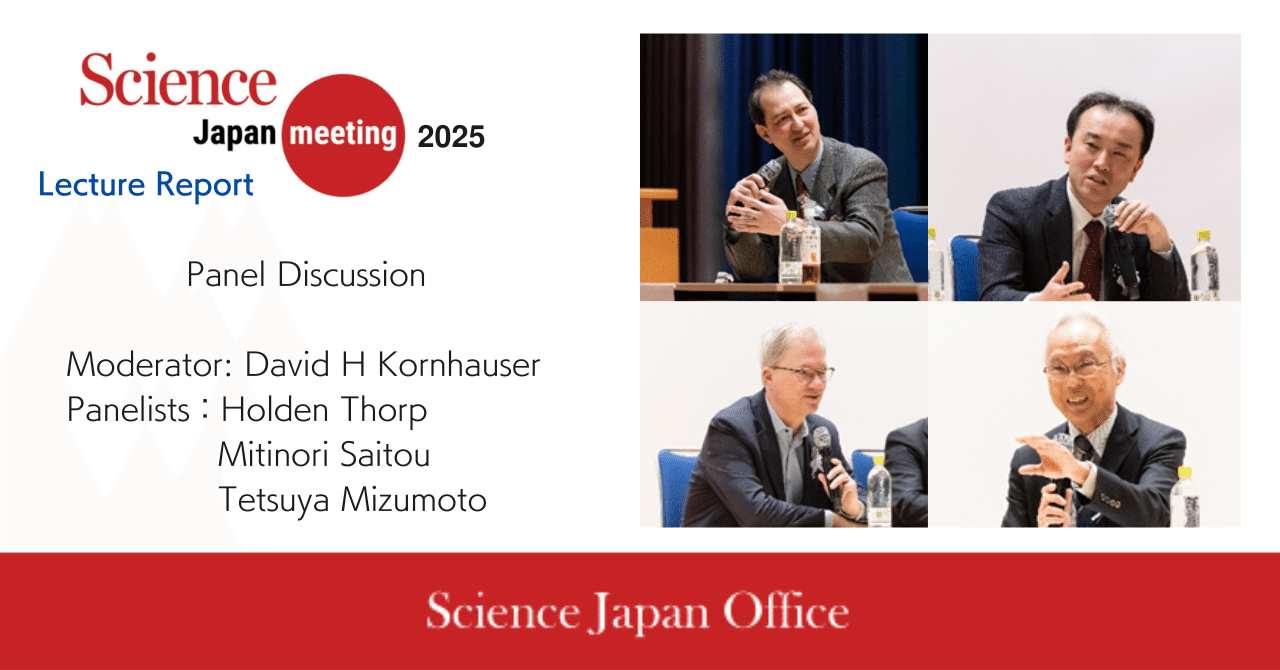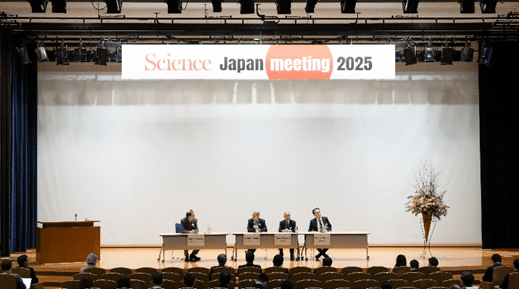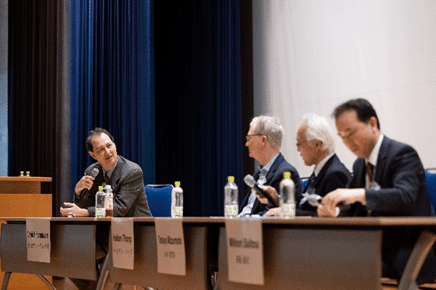
■ Theme: What Can We Do to Enhance Science?
■Moderator: David H. Kornhauser, Director of Global Communications at Kyoto University
■Panelists: Holden Thorp, Editor-in-Chief of the Science Family of Journals; Mitinori Saitou, Director, Institute for the Advanced Study of Human Biology (WPI-ASHBi), Kyoto University; and Tetsuya Mizumoto, Executive Director, The Japan Society for the Promotion of Science (JSPS)

David H. Kornhauser, Director of Global Communications at Kyoto University, moderated a panel discussion titled “What Can We Do to Enhance Science?” Joining the panel were Holden Thorp, Editor-in-Chief of the Science Family of Journals; Mitinori Saitou, Director of the Institute for the Advanced Study of Human Biology (WPI-ASHBi) at Kyoto University; and Tetsuya Mizumoto, Executive Director of the Japan Society for the Promotion of Science (JSPS).

The discussion centered on the disruptions facing traditional scientific practices, with a particular focus on the role of artificial intelligence (AI).
Holden Thorp highlighted AI’s potential to disrupt education and research positively and negatively. He noted that many significant advancements in AI and quantum computing are currently driven by industry rather than academia, largely due to the resources and the speed at which industry operates. Thorp shared an example of how open-source models in academia can push industry giants like Google to be more transparent, as seen with the AlphaFold project.
Mitinori Saitou discussed AI’s utility in his laboratory, particularly in aiding students and postdocs with computational analysis and data processing. However, he expressed concerns about AI’s limitations, such as its impersonal writing style and lack of critical, original insights in its summaries. Saitou emphasized the importance of proper education and training to make the most of AI tools.
Tetsuya Mizumoto shared a humorous anecdote about AI’s early limitations and highlighted JSPS’s strict policies against using AI in application reviews to prevent data theft. He underscored the need for the careful handling of unpublished research when working with AI to maintain confidentiality and integrity.
The panel also addressed the humanities and social sciences and how their future compares with the natural sciences. Mizumoto and Thorp both emphasized the importance of interdisciplinary collaboration and the need for coordinators to bridge the gap between different scientific domains. Thorp pointed out that many challenges in science stem from a lack of understanding of the humanities and social sciences, which are crucial for comprehending the broader impact of scientific advancements.
Overall, the panelists agreed on the need for a more flexible and dynamic approach to scientific education and research environments. Thorp advocated for treating students with compassion and supporting diverse career paths to attract and retain more scientists. The discussion underscored the importance of open-mindedness, collaboration, and adaptability in enhancing the future of science.

コメントを残す